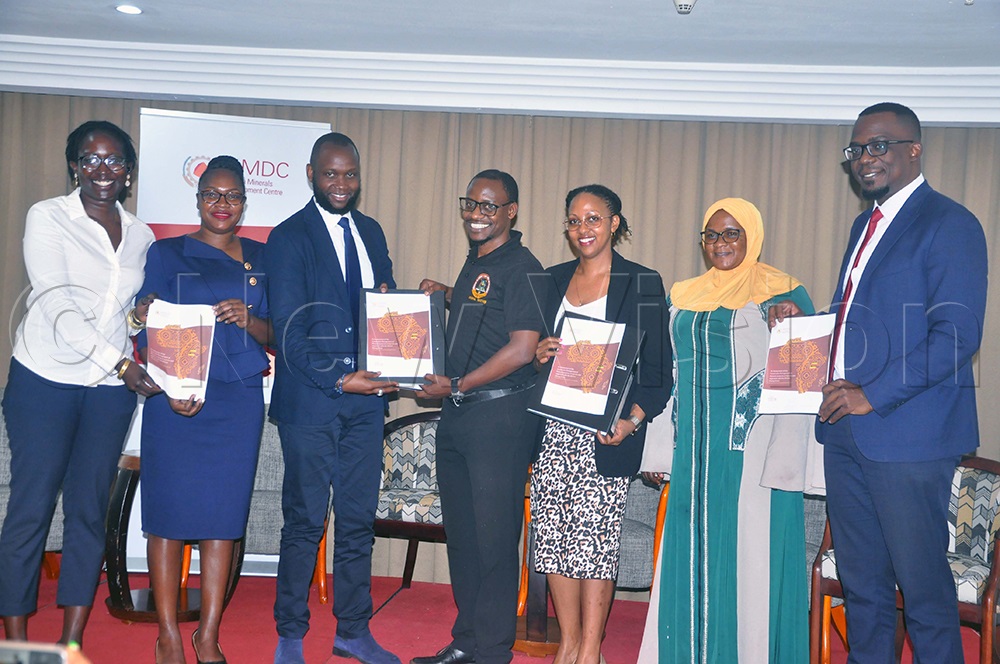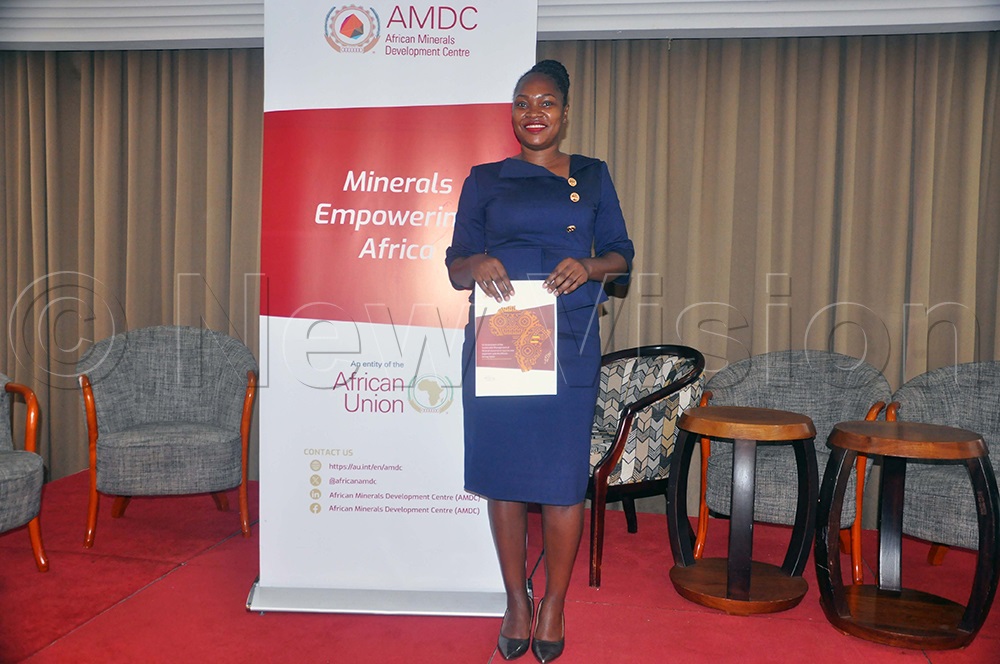Uganda urged to ratify AU mining statute to boost mineral governance, value addition
The meeting at the Sheraton Kampala Hotel presented findings from an AMDC-led assessment on the governance and sustainable mineral resource management in Uganda and its alignment with the African Mining Vision.
Participants who attended the launch of the report on the governance and sustainable mineral resource management in Uganda and its alignment with the African Mining Vision. This was at the Sheraton Hotel, Kampala. (Photo by John Odyek)
_______________
Uganda has been urged to ratify the Statutes of the African Minerals Development Centre (AMDC), a key step toward unlocking the continent’s mineral wealth and aligning with the Africa Mining Vision (AMV).
Officials from the AMDC say ratification would demonstrate Uganda’s commitment to sustainable mineral development, industrialisation and economic diversification. So far, only four African Union (AU) member states: Guinea, Mali, Zambia and Nigeria have ratified the statute. A minimum of 15 are required for the AMDC to become fully operational.
“Uganda can become the fifth member of the AMDC as we target 15 countries to make it operational,” Mkhululi Ncube, a programmes officer at the centre, said, during a stakeholders’ meeting in Kampala on September 4, 2025.
The meeting at the Sheraton Kampala Hotel presented findings from an AMDC-led assessment on the governance and sustainable mineral resource management in Uganda and its alignment with the African Mining Vision.
Nakanwagi (Second Left), Ncube (Third Left), Morris (Centre) and other officials holding copies of the report on the governance and sustainable mineral resource management in Uganda and its alignment with the African Mining Vision. This was at the Sheraton Hotel, Kampala. (Photo by John Odyek)

Nakanwagi holding a copy of the report on the governance and sustainable mineral resource management in Uganda and its alignment with the African Mining Vision. This was at the Sheraton Hotel, Kampala. (Photo by John Odyek)
The review highlighted both opportunities and challenges in the country’s mining sector, which hosts significant deposits of gold, iron ore, phosphates, rare earths, copper, and graphite.
Dr Susan Nakanwagi, the lead consultant for the study, said Uganda’s mineral sector scored an overall 60% against AMV benchmarks. Nakanwagi presented the findings of the study titled: Evaluation of the Sustainable Management of Mineral Resources in Uganda and Alignment with the Africa Mining Vision (AMV).
The study showed various scores of the six pillars of the African Minerals Governance Framework, where geological and mineral information systems scored 70%, legal framework (67%), strongly, artisanal and small-scale mining (47%), fiscal regime and revenue management (61%), sector linkages (50%) and environment and social issues (59%).
She recommended reforms, including a model mining agreement to standardise contracts, stronger enforcement and transparency in licensing, updated geological databases and increased funding for the Department of Geological Survey and Mines and windfall taxes to capture super-profits.
Other proposals were; ASM formalisation through cooperatives, simplified licensing, and financing solutions, stricter environmental safeguards, including mine closure bonds and phasing out mercury in gold processing.
Government officials said Uganda’s ban on exporting unprocessed ores aligns with the AMV goal of building local value chains.
“If we want to take everyone out of poverty, we need manufacturing to happen here. The advanced countries got there by developing their mineral resources,” Morris Tabaro, the inspector of mines at the energy ministry, said.
Sector's contribution
Uganda’s mineral sector currently contributes 2.2% ($1.1 billion) to GDP, according to the Uganda Bureau of Statistics, down from 7% in the 1960s. Authorities project a ten-fold expansion of the economy from $50 billion in FY2023/24 to $500 billion by 2040 anchored partly on mineral value addition.
Artisanal miners, represented by the Uganda Association of Artisanal and Small-Scale Miners (UGAASM), raised concerns over limited access to affordable finance, with many resorting to moneylenders charging up to 60% monthly interest. UGAASM chief executive officer Kenneth Asiimwe said the group is considering establishing a “miner’s bank” to ease access to credit and tax compliance. Assiimwe said that artisanal miners faced difficulties accessing finance because traditional lending institutions do not understand the intricacies of mining.
Rachel Mbabazi Sendagire, the head of Natural Resources Management at the Uganda Revenue Authority (URA), said tax reforms are underway to tailor obligations for ASM operators, possibly through presumptive taxes or flexible payment schedules.
Sendagire said they had benchmarked Tanzania’s tax system relating to gold and hope to use some of their ideas, noting that they were undertaking a public consultation on new tax proposals for the mining sector.
Civil society and the National Environment Management Authority (NEMA) warned against unchecked environmental degradation.
“Minerals are finite, the environment must be restored long after extraction ends,” NEMA inspector Hajara Nakiberu said.
Nakiberu called for stronger enforcement and financing of environmental oversight. She noted the fees charged for environment impact assessment by NEMA were not high.
Resource Rights Africa’s executive director, Andrew Byaruhanga, added that mining projects must respect community rights, citing land conflicts in Karamoja caused by mining concessions.
The AMDC, established in 2013 as a specialised African Union (AU) agency, provides technical support to member states implementing the AMV. Adopted in 2009, the AMV seeks to ensure Africa secures greater benefits from its minerals through better governance, value addition and industrialization.